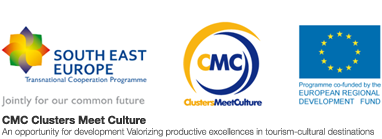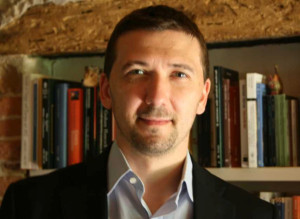An interview with Sergio Calò for CMC web site.
Sergio Calò is the technical coordinator of Metadistretto dei Beni Culturali (Meta Cluster of Cultural Heritage) of the Veneto Region. The Cluster is the only cultural productive cluster with a PPP organisation involving universities and research centres related to research in cultural heritage in Italy. Mr. Calò has been interviewed on the Clusters role in Europe and the possible benefit of the synergy between clusters and culture promoted by the CMC Project:
According to your opinion, a cluster needs to be formally recognized?
Some existing clusters are not formalised. In Veneto, Clusters existed already before their legal formalisation. Legal form of clusters could be very different. We are recognized as consortium. Other are created as SARL. Legal formalisation of a cluster can create a wider awareness among enterprises and more opportunities related to common services.
Which are the main obstacles hindering clustering? What are the main success achieved?
The main obstacles for evolution of clusters activities are connected with the territory itself (local mentality): the local stakeholders are not used to cooperate and create synergies. Many stakeholders are active just if they find a specific interest and direct advantage in the proposed initiative. Only 25% of the enterprises in a cluster are pro-active. Members are active only when they see a concrete benefit to achieve. The task of a cluster is to make intelligible all the common points gathering the enterprises members, to make understand to the enterprise that through collaboration, it is possible to improve. Clusters would need to collaborate on innovation and research more than on promotion (instead it is on this last point that current Italian clusters actually focus more).
How strong is creative and cultural industry in your region? How would you define it?
The concept of creative industry exists from 50 years. It is a collection of knowledge that allows entrepreneurs to share a common culture, find solutions to problem thanks to creativity, an entrepreneurship culture. The other conception of creative industry is the world of the design: creation of a new product. Creative industry is just a fashionable concept created by Universities. It is necessary to create link between design and utility.
How strong is tourism in your region and what development potentials can you see?
The challenge is to create synergies between neuralgic centres and the rest of the territory. Venice concentrates major part of the tourism flux. Patrimony is not well exploited. Museums are boring. An adapted and targeted communication is missing. It is necessary to conjugate ICT and patrimony.
In your opinion, are enterprises from the productive sector linked with the culture? Are donations to cultural activities from the private sector strongly developed (mecenate)?
Mecenate is not well developed in Italy as fiscal regulation does not facilitate these kind of initiatives. Culture has to be integrated with the productive sector. Culture can be business. Historical buildings have been considered for a long time as financial burden and money asked to the public sector for restoration. There are interesting initiatives of venetian villas that have been used and restored by the private sector. One villa, Villa Zileri Motterle at Montevialle (Vicenza) decided to host in its edifices some enterprises that sell products linked to the art or not. Enterprises selling their product in venetian villas can give an added value to the product they sell. They sell a product that is integrated in a territory.
Do you think Private public partnership could
be a good tool to promote an integrated tourism promotion of the territory? There is little coordination and communication for an integrated tourism promotion of Veneto region. It is important to create a system through networking. Participation of the public sector can not be reduced only to sponsorship (putting the logos of some public entity). To make a PPP, it is necessary to implement actions, putting expertises in common, not resumed only to a cash co-financing. The public sector has to have an institutional role without superposing to the private.
What do you expect from the CMC project?
Increase collaboration between public and private sector. Shopping trainer and ICT platform are interesting initiatives.

